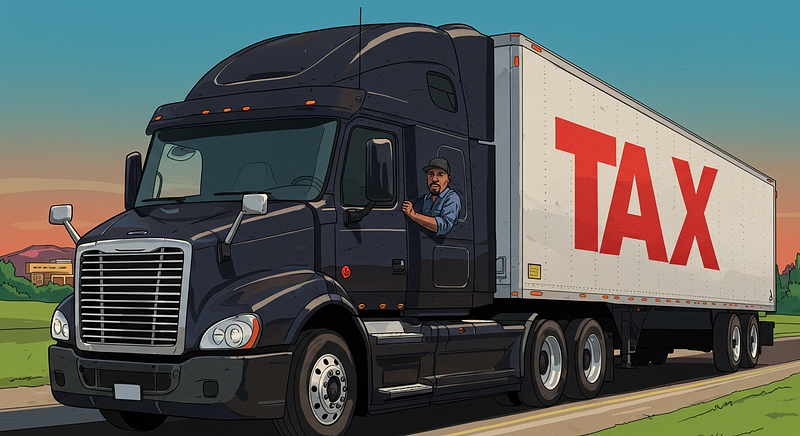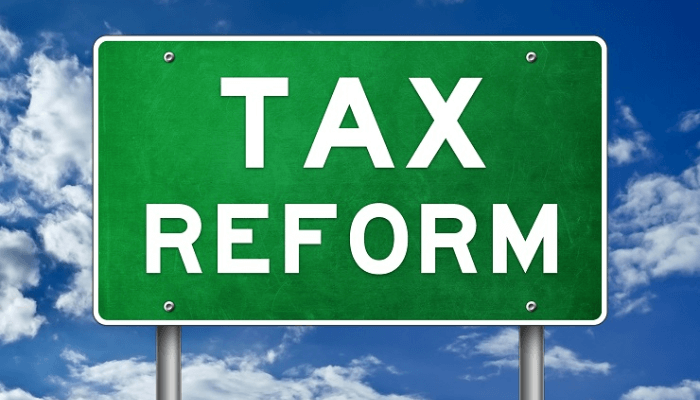How Nigeria's New Tax Reform Can Save the Haulage Industry - and Empower Truck Drivers

For years, the Nigerian haulage industry has faced a heavy burden not from the weight of the goods it carries, but from the unofficial hands collecting fees along the roads. Truck drivers, already navigating treacherous highways and enduring long hours, have also had to deal with an exhausting and unregulated web of informal tax collectors — local government agents, road union enforcers, and outright touts demanding payments at almost every checkpoint.
The Strain of Informal Tax Collection
Ask any truck driver traveling from Lagos to Kano, or Port Harcourt to Maiduguri, and they’ll tell you: every state border and local council junction is a potential stop-and-pay point. These payments — often illegal or poorly accounted for — add layers of cost, frustration, and delay to an already complex business.

Some key effects of this informal system have included:
- Loss of income for truck drivers, who often bear the brunt of these payments from their pockets.
- Unpredictable delivery schedules, as stops and extortions disrupt routes and create bottlenecks.
- Increased haulage costs, which are passed down to businesses and consumers.
- Discouragement of formal compliance, as operators feel cheated by the system even when paying official taxes.
This chaotic taxation culture has pushed many logistics operators to the brink, discouraging investment and damaging trust in the regulatory environment.
A Turning Point: The New Nigerian Tax Reform

The new tax reform policy, introduced by the Nigerian government under the renewed drive for transparency and efficiency, aims to abolish multiple and informal taxation practices and bring all tax-related activities under a streamlined, digital framework. One of the key objectives is to formalize road taxes and levies, centralizing collections and reducing human interference on the road.
For the haulage sector, this is a potential game-changer.
What Truck Drivers and Haulage Operators Stand to Gain
- Elimination of Illegal Levies — No more “road boys” or anonymous tax agents demanding random fees.
- Reduced harassment and a safer working environment for drivers.
- Lower Operational Costs - By cutting out unauthorized payments, trucking businesses can operate leaner and improve profitability.
- Transparent levies allow companies to plan better and bid competitively.
- Increased Efficiency - Fewer unnecessary stops mean faster deliveries and less wear and tear on vehicles.
- Improved route management due to predictable taxation environments.
- Formalization of the Industry - Drivers can now benefit from documented tax records, which enhance access to credit, insurance, pensions, and other financial services.
- Trucking will shift from a survival hustle to a more respected profession.
- Industry Investment and Growth — Clear and consistent tax policies will attract both local and foreign investment into logistics and transport infrastructure.
What Industry Players Must Do Now
While the reform is a strong foundation, its success depends on how well the industry embraces it. Haulage companies, unions, and drivers must:
- Educate themselves about the new tax system and channels for remitting taxes officially.
- Report illegal tax points and resist old practices that compromise transparency.
- Support digital adoption, using technology to manage fleet taxes, permits, and road levies.
- Engage with policymakers, ensuring their voices help shape how reforms are implemented on the ground.
A New Era on the Road
Nigeria’s haulage industry is the lifeblood of the nation’s supply chain. For too long, it has been choked by informal systems that sap its energy and stifle its growth. The new tax reform is not just a policy shift — it is a chance to reset the industry, to empower truck drivers, and to create a transport sector that is safer, fairer, and more profitable.
It’s time for the road to work for those who drive it.
Let’s shift gears — toward progress.



Comments
Post a Comment